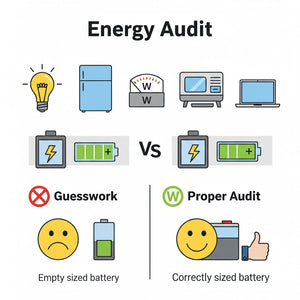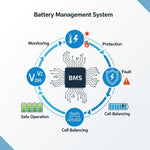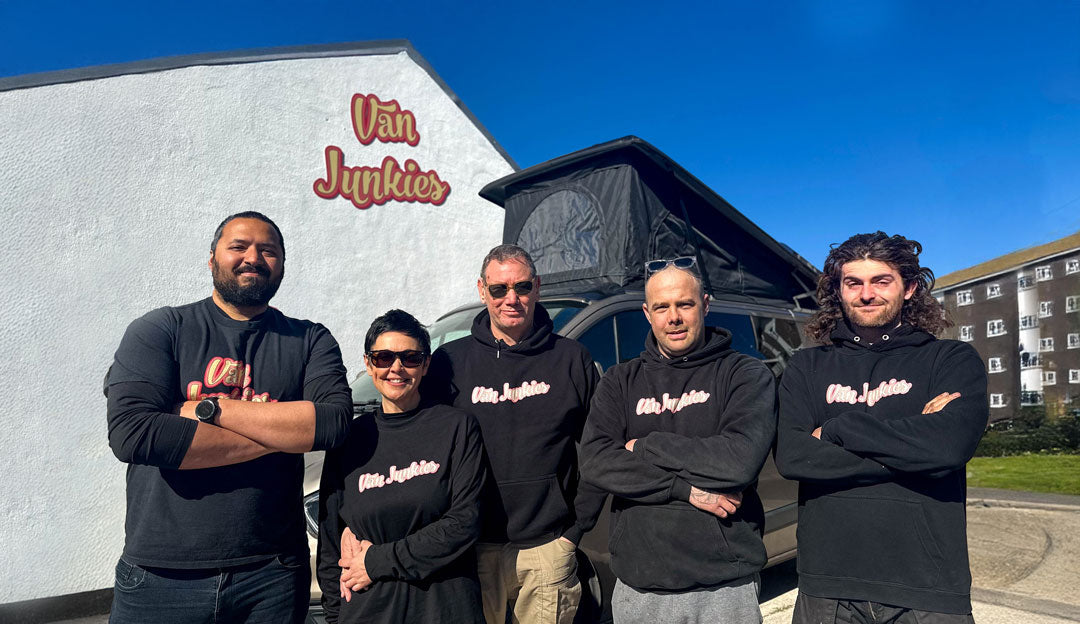Power Up Your Adventures: The Ultimate Guide to Lithium Leisure Battery Upgrades
Switching to Lithium: A Guide to Powering Your Adventures in Motorhomes, Campervans, and Boats
Alright, let's talk power. If you've spent any real time off-grid in your motorhome, campervan, or boat, you know your leisure battery and the power it contains is everything. If you're still wrestling with old-school lead-acid batteries you've probably experienced their limitations – the weight, the slow charging, the constant worry about how much juice you really have left. For years, we've seen customers make the jump to lithium, specifically Lithium Iron Phosphate (LiFePO4), these batteries are game-changers and enable genuine freedom on the road or water. This isn't just another fad; a campervan lithium battery upgrade is one of the most significant improvements you can make. We aim to offer some straightforward advice on why it's worth it and what to actually expect.
So, Why Bother With Lithium? The Real-World Advantages.
When you're out there, you want things to just work. Lithium (LiFePO4) batteries deliver on that, and here’s how we see the benefits:
Lighter Load, More Gear: These things are seriously light – often half the weight of lead-acid for the same usable power. That means less strain on your rig and more capacity for your essentials.
Years, Not Seasons: A good LiFePO4 battery can last you 10 years or even more, handling thousands of charge cycles. Lead-acid? You're lucky to get 2-3 years. This makes lithium a solid long-term investment.
Use All The Power You Paid For: With lead-acid, you’re typically told not to drain them past 50% of their rated capacity if you want them to last. Lithium? You can comfortably use 90% of the power (though sticking to 80-90% is a good habit for ultimate longevity). A 100Ah lithium battery gives you twice as much usable power than a 100Ah lead-acid.
Charge Up and Go, Faster: Lithium batteries can handle much higher charge currents. This means they charge up significantly quicker from your solar, alternator, or hook-up. Less time waiting, more time adventuring. They're also more efficient, so less power is wasted.
Steady Power, Happy Appliances: You'll notice your lights don't dim and appliances run better because lithium provides a more stable voltage right through its discharge cycle. This is particularly applicable when trying to power a fridge for extended periods on 12v power alone.
Forget Maintenance: No more topping up water or cleaning corroded terminals. These are sealed units – zero maintenance is required.
Safer Chemistry (LiFePO4): The LiFePO4 type of lithium is inherently very stable and has a much lower risk of issues like thermal runaway compared to other lithium types. It’s the smart choice for leisure vehicles.
Handles the Cold Better: While all batteries feel the cold, LiFePO4 generally performs better than lead-acid. Many now even come with built-in heaters for reliable charging in freezing UK winters.
Making the Switch: What Your Campervan Lithium Battery Upgrade Involves
Now, upgrading isn't always just a case of swapping the old battery for the new. To do it right and get the most from your investment, there are a few key things to consider:
Your Whole System Matters: Take a look at your current setup. Your existing chargers might not be up to the job for lithium.
Charging Components are Crucial:
Ensuring your charging systems are compatible is essential, especially if you have a modern vehicle with a smart alternator. Fitting a DC to DC charging system ensures your lithium battery gets the right charge from your engine, safely and efficiently. Your other charging systems are likely to be Ok (depending on battery choice), the expert team at Van Junkies are happy to chat through the technicalities and advice on the necassery upgrades.
The Battery Management System (BMS): Any good quality lithium leisure battery will have a BMS built-in. This is its brain, protecting it from things like over-charging, over-discharging, high temperatures, and keeping the cells balanced. Don't skimp here.
Installation: Securely fit your new battery (they can usually go in any orientation, which is handy). Check your wiring too; sometimes, it might need an upgrade to handle the new system.
While some with good electrical knowledge tackle this themselves, if you're unsure, getting a professional to install it is a wise move. Peace of mind is worth a lot.
Picking the Right Lithium Battery for You (Answering "what size leisure battery do i need?")
This is where a bit of homework pays off big time.
The Energy Audit is King: This is the absolute first step to figuring out "what size leisure battery do i need?".
Capacity – How Much Ah?: Once you know your daily use, think about how many days you want to go without needing a full recharge (your autonomy). For example, if you use 60Ah a day and want two days of power, you'll need at least 120Ah of usable power. A 150Ah lithium battery would likely cover this comfortably. Don't go too small, but don't buy way more than you need either.
Space & Shape: Will it physically fit where your old battery was, or where you plan to put it?
Voltage: For most campervans, motorhomes, and smaller boats, 12V is the standard.
BMS Features: Beyond the basics, look for things like low-temperature charge protection, especially if you camp in the cold.
Built-in Monitoring Most modern lithiums such as those supplied by Fogstar have built in Bluetooth that sends up to date information straight to your smartphone or tablet.
What is the best lithium battery for a campervan? (and motorhomes/boats)
This is the question everyone asks, and the honest answer is: the "best" battery is the one that's best for you and your setup.
There's no single magic bullet. The best caravan leisure battery or campervan option will be a LiFePO4 battery that:
Matches your energy needs (that energy audit we talked about is key!).
Fits your space and weight limits.
Has a quality BMS with all the protections you need.
Comes from a reputable brand with a decent warranty.
Fits your budget, remembering this is a long-haul investment.
For general use in motorhomes, campervans, and boats, LiFePO4 is definitely the leading chemistry due to its safety, long life, and great performance. When looking for your lithium ion battery for motorhome, focusing on LiFePO4 options from trusted sources is a smart move.
If you're ready to explore a campervan lithium battery upgrade, it's worth chatting with our specialists who really know their stuff. We can guide you through selecting the right battery and components for your specific needs and can often help with advice on installation too.
Making the switch to lithium is a significant step up. It costs more upfront than sticking with lead-acid, no doubt. But for the performance, the lifespan, and the sheer convenience it brings to your adventures, We genuinely believe it's one of the best upgrades you can make and have nothing but positive feedback from those that have made the jump.
Call us on 023 935 52732 or WhatsApp us directly from the website for expert advice.

Summary
ADDITIONAL INFO
Why Your Energy Audit is Non-Negotiable

Understanding Your Battery's Lifeguard: The BMS

Van Junkies: Our Story





















